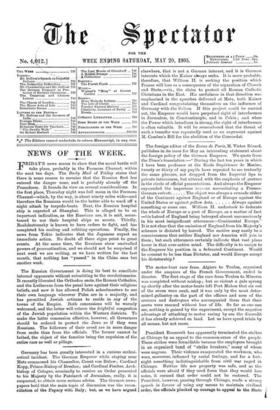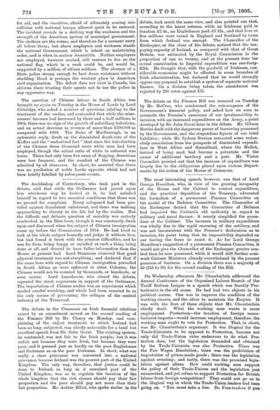President Roosevelt has apparently terminated the strikes at Chicago by
an appeal to the common-sense of the people. These strikes were formidable because the employers brought in an organised band of "strike breakers," many of whom were negroes. Their violence exasperated the workmen, who were, moreover, inflamed by racial feelings, and for a fort- night something indistinguishable from civil war raged in Chicago. Neither life nor property was safe, and as the officials were afraid if they used force that they would lose votes, it seemed that order could not be restored. The President, however, passing through Chicago, made a strong speech in favour of using any means to maintain civilised order, the officials plucked up courage to appeal to the State
for aid, and the gmeutiers, afraid of ultimately coming into collision with national troops, allowed quiet to be restored. The incident reveals in a striking way the weakness and the strength of the American system of municipal government. The strikers are the voters, and therefore for a moment carry all before them ; but above employers and workmen stands the national Government, which is intent on maintaining order, and is when in motion irresistible. Neither employers nor employed, however excited, will venture to fire on the national flag, which in a week could be, and would be, supported by a million of citizen soldiers. The absence of a State police strong enough to beat down resistance without shedding blood is perhaps the weakest place in American civil organisation. The defect does not exist in Canada, the citizens there trusting their agents not to use the police in any oppressive way.







































 Previous page
Previous page